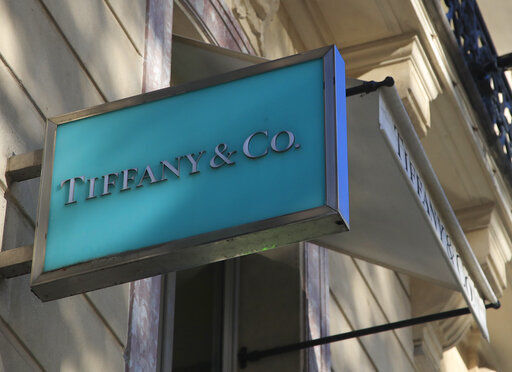NEW YORK — Luxury goods giant LVMH is ending its takeover deal of luxury jewelry retailer Tiffany & Co., saying the French government had requested a delay to the agreement due to the threat of proposed U.S. tariffs on French goods.
The Paris-based conglomerate said that both the French government and Tiffany had requested that the closing of the deal be postponed. The French government, it said, wanted to assess the impact of the possible U.S. tariffs on French goods.
As a result, LVMH said, the $14.5 billion deal that was scheduled to close Nov. 24 will be canceled.
Tiffany replied that it’s suing to enforce the merger agreement, which was signed in November 2019. The New York company said LVMH’s argument has no basis in French law. Tiffany also said that LVMH hasn’t even attempted to seek the required antitrust approval from three jurisdictions.
Shares in Tiffany slid 9% in premarket trading in New York. Those in LVMH, which owns 75 brands including Christian Dior, Fendi, Givenchy and Tag Heuer, were stable.
The deal came under strain from the coronavirus pandemic, which caused retail sales to plunge around the world. Tiffany’s share price has been trading around $125 a share for weeks – below the $135 per share price that LVMH had agreed to pay last fall, before the pandemic.
The question of tariffs appears to have further complicated the situation. Last year, France sought to impose a tax on global tech giants including Google, Amazon and Facebook. The French tech tax is aimed at “establishing tax justice.” France wants digital companies to pay their fair share of taxes in countries where they make money instead of using tax havens, and is pushing for an international agreement on the issue.
In response to the tech tax, the U.S. threatened to slap 100% tariffs on $2.4 billion of French products.
The two sides are at a tense truce as France has said it would delay collection of the digital tax until December, parking the issue until after the next U.S. presidential election where Trump hopes to secure another four-year term.
The French government did not immediately respond to a request for comment.


